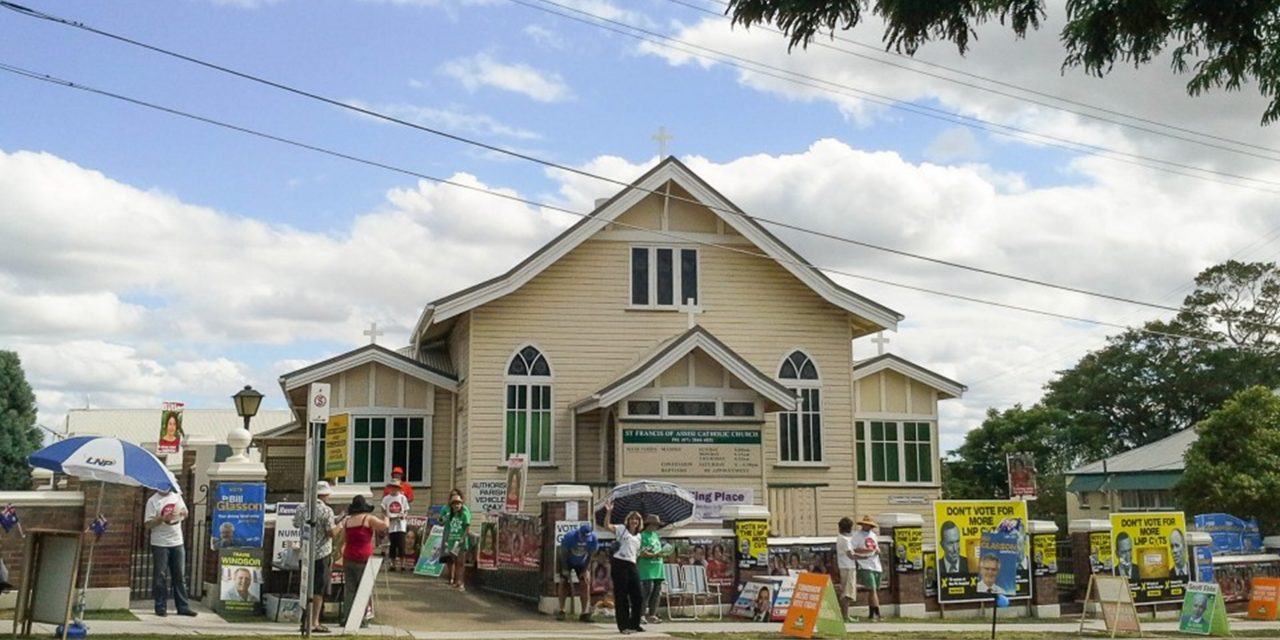Last week, Lord Mayor Adrian Schrinner announced changes to Council regulations on the placement of election signs on private property.
The new rules will restrict how many election signs candidates in state and local elections can display on private properties. Perhaps, most controversially, residents wanting to post a candidate’s corflutes on their property will now be required to register the location with Council..
Council introduced the changes, the Mayor said, to reduce waste and visual pollution.
President of the Queensland Council of Civil Liberties (QCCL), Michael Cope said today:
“The QCCL is opposed to the recent decision of the Brisbane City Council to reinstate restrictions on the placing of election signs on private property in Brisbane”.
The new rules are said to reinstate old rules require that:
- A person must register with the Council before erecting a sign
- The sign cannot be installed more than 28 days prior to the election and must be removed within seven days of the election
- A candidate cannot display more than 150 signs in Commonwealth seat, and 50 in a State seat or Council seat.
A Council spokesperson advised the ABC last week that issues-based signs on private properties are a separate issue, “but residents still needed council permission to install one.”
Councillor for The Gabba, Jonathan Sri, said on Facebook this week that the move, “…seems calculated to force political parties to rely more heavily on buying billboard ads, and disadvantages smaller parties like the Greens who rely on strong grassroots support bases to put up their own private signs.”
“I don’t actually see how the rules will be enforceable in practice (similar rules used to exist but were never meaningfully enforced), and there’s a pretty strong argument to be made that they might actually be unconstitutional because they violate the fundamental freedom of political communication,” Cr Sri wrote.
The QCCL’s Michael Cope said a law requiring people to register with the Council before they can exercise their right to express a political opinion on their private property is “fundamentally repugnant to the whole concept of freedom of speech.”
“QCCL accepts that the Council has legitimate interests to protect in regulating signs including political signs, which include preventing them from obstructing views and boundaries, restricting land use, distracting motorists and preventing eyesores. To that end, the Council can no doubt pass local laws which restrict the size of signs, number of signs and the places where signs can be put to achieve these objectives.”
However, Mr Cope said it is the view of the QCCL that it is, “entirely inappropriate for the Council to require a person to register with them before putting up a political sign.’
“Furthermore, in our view the durational limits are also unacceptable. There should be no restriction on the time period before an election during which people can express their preference,” Mr Cope said.
Mr Cope said that the requirement to take the signs down after the election does make more sense.
“However why should people’s right to express their political views with a reasonable sign on their own land be restricted in this way? We would expect that most people will readily take down an old and redundant sign without compulsion.”
The QCCL says that while Council could reasonably put a broader limit on the number of signs a person could put on their property to prevent visual pollution, the restrictions on the number of signs that can be erected in a seat are entirely inappropriate, and, “are not sufficiently related to the question of land use, safety, or visual pollution.”
“We are sure, that the interest which people have in maintaining the value of their property is a very strong incentive not to clutter their land with a large number of large signs all year round,” said Mr Cope.
The QCCL says it does not doubt that the regulations would be struck down in the United States under its First Amendment.
“However, in Australia, we only have the very amorphous implied constitutional right of free political communication. We don’t think it is possible to say whether or not these laws would be struck down on the basis of that principle.”
“The fact the Council is re-enacting old laws is irrelevant. The laws were an unacceptable restriction of freedom of speech back then and the remain so now”
See the new rules here – Permitted Advertising Devices Rule – Clause C – Attachment D – May 2021
Cover image by Jan Bowman


